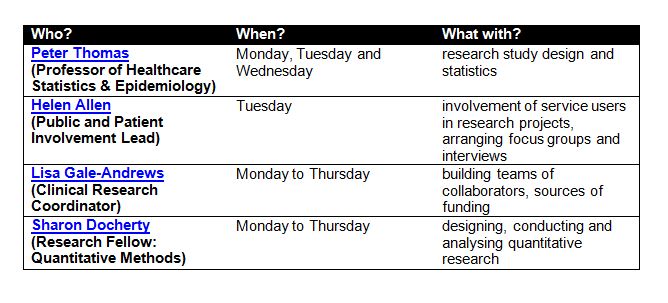 The British Academy informed us yesterday that we have been successful in our application to the Writing Workshops 2021. The project builds research capacity of early career researchers researching gender in higher education institutions in Nepal. The grant will provide training in academic writing and publishing to help improve Nepali staff’s chances of getting published in international journals in English. The workshops will be co-delivered by a team of UK-based (Dr. Shovita Dhakal Adhikari, Dr. Pramod Regmi and Prof. Edwin van Teijlingen) and Dr. Rashmee Rajkarnikar from Nepal’s oldest university, Tribhuvan University, supported by Nepali scholars/editors from Social Science Baha (SSB).
The British Academy informed us yesterday that we have been successful in our application to the Writing Workshops 2021. The project builds research capacity of early career researchers researching gender in higher education institutions in Nepal. The grant will provide training in academic writing and publishing to help improve Nepali staff’s chances of getting published in international journals in English. The workshops will be co-delivered by a team of UK-based (Dr. Shovita Dhakal Adhikari, Dr. Pramod Regmi and Prof. Edwin van Teijlingen) and Dr. Rashmee Rajkarnikar from Nepal’s oldest university, Tribhuvan University, supported by Nepali scholars/editors from Social Science Baha (SSB).
We have planned three stages: 1) virtual mini workshops, guided discussion/input on academic writing, publishing, journal submission, and review processes ; 2) online workshops where participants present their draft papers/work and receive feedback from peers, mentors, invited speakers/editors and opportunities networking/collaborations (for co-authorship, peer review and peer support); and 3) monthly tutorials (webinars) later in 2021 to provide mentorship and peer support to participants.
This application is third time lucky as two previous applications to The British Academic for Writing Work had not been successful. Over the years the team has build up capacity in academic writing and publishing in Nepal ad hoc. This grant will allow us to offer a more systematic approach to academic writing capacity building in Nepal. It is building on a growing number of paper published by FHSS staff on various aspects of academic writing and publishing. [1-14]
References:
- Adhikari, S. D., van Teijlingen, E. R., Regmi, P. R., Mahato, P., Simkhada, B., & Simkhada, P. P. (2020). The Presentation of Academic Self in The Digital Age: The Role of Electronic Databases. International J Soc Sci Management, 7(1), 38-41. https://doi.org/10.3126/ijssm.v7i1.27405
- van Teijlingen, E, Hundley, V. (2002) Getting your paper to the right journal: a case study of an academic paper, J Advanced Nurs 37(6): 506-11.
- Pitchforth, E, Porter M, Teijlingen van E, Keenan Forrest, K. (2005) Writing up & presenting qualitative research in family planning & reproductive health care, J Fam Plann Reprod Health Care 31(2): 132-135.
- van Teijlingen, E, Simkhada, PP, Rizyal A (2012) Submitting a paper to an academic peer-reviewed journal, where to start? (Guest Editorial) Health Renaissance 10(1): 1-4.
- van Teijlingen, E, Simkhada. PP, Simkhada, B, Ireland J. (2012) The long & winding road to publication, Nepal J Epidemiol 2(4): 213-215 http://nepjol.info/index.php/NJE/article/view/7093/6388
- Hundley, V, van Teijlingen, E, Simkhada, P (2013) Academic authorship: who, why and in what order? Health Renaissance 11(2):98-101 www.healthrenaissance.org.np/uploads/Download/vol-11-2/Page_99_101_Editorial.pdf
- Simkhada, P., van Teijlingen E., Hundley, V., Simkhada, BD. (2013) Writing an Abstract for a Scientific Conference, Kathmandu Univ Med J 11(3): 262-65. http://www.kumj.com.np/issue/43/262-265.pdf
- Simkhada P, van Teijlingen E, Hundley V. (2013) Writing an academic paper for publication, Health Renaissance 11(1):1-5. www.healthrenaissance.org.np/uploads/Pp_1_5_Guest_Editorial.pdf
- van Teijlingen, E., Ireland, J., Hundley, V., Simkhada, P., Sathian, B. (2014) Finding the right title for your article: Advice for academic authors, Nepal J Epidemiol 4(1): 344-347.
- van Teijlingen E., Hundley, V., Bick, D. (2014) Who should be an author on your academic paper? Midwifery 30: 385-386.
- Hall, J., Hundley, V., van Teijlingen, E. (2015) The journal editor: friend or foe? Women & Birth 28(2): e26-e29.
- Sathian, B., Simkhada, P., van Teijlingen, E., Roy, B, Banerjee, I. (2016) Grant writing for innovative medical research: Time to rethink. Med Sci 4(3):332-33.
- Pradhan, AK, van Teijlingen, ER. (2017) Predatory publishing: a great concern for authors, Med Sci 5(4): 43.
- van Teijlingen, E (2004), Why I can’t get any academic writing done, Medical Sociol News 30(3): 62-63. britsoc.co.uk/media/26334/MSN_Nov_2004.pd












 Beyond Academia: Exploring Career Options for Early Career Researchers – Online Workshop
Beyond Academia: Exploring Career Options for Early Career Researchers – Online Workshop UKCGE Recognised Research Supervision Programme: Deadline Approaching
UKCGE Recognised Research Supervision Programme: Deadline Approaching SPROUT: From Sustainable Research to Sustainable Research Lives
SPROUT: From Sustainable Research to Sustainable Research Lives BRIAN upgrade and new look
BRIAN upgrade and new look Seeing the fruits of your labour in Bangladesh
Seeing the fruits of your labour in Bangladesh ECR Funding Open Call: Research Culture & Community Grant – Apply now
ECR Funding Open Call: Research Culture & Community Grant – Apply now ECR Funding Open Call: Research Culture & Community Grant – Application Deadline Friday 12 December
ECR Funding Open Call: Research Culture & Community Grant – Application Deadline Friday 12 December MSCA Postdoctoral Fellowships 2025 Call
MSCA Postdoctoral Fellowships 2025 Call ERC Advanced Grant 2025 Webinar
ERC Advanced Grant 2025 Webinar Update on UKRO services
Update on UKRO services European research project exploring use of ‘virtual twins’ to better manage metabolic associated fatty liver disease
European research project exploring use of ‘virtual twins’ to better manage metabolic associated fatty liver disease